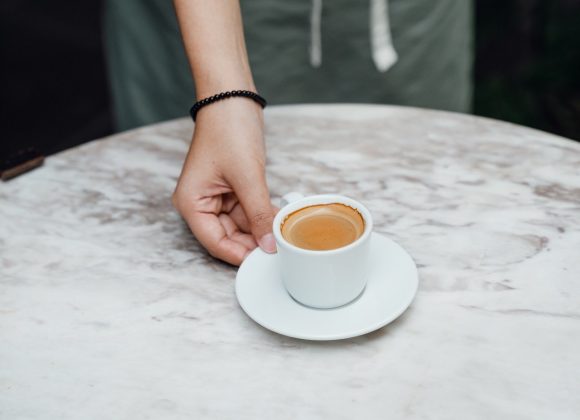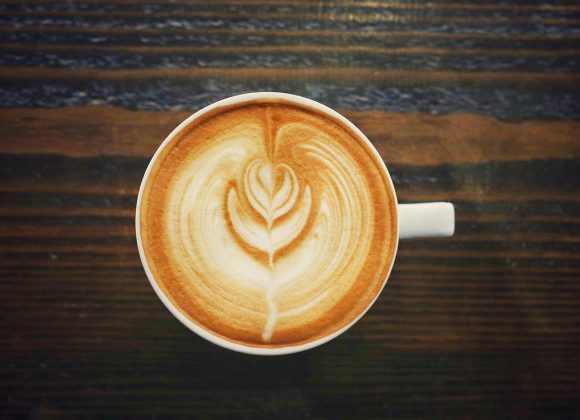
The Jamaican Blue Mountain Coffee is not your average coffee bean. You cannot find it in most coffee shops. Only the fanciest cafes and food establishments carry this superb Arabica coffee bean.
But why exactly is it so rare? Why does it taste so good? And why does it cost much more than most coffee beans?
Don’t worry, today we will be answering these questions and much more!
History Of Jamaican Blue Mountain Coffee
Coffee – growing in Jamaica dates back all the way to the 18th century. It was first brought to the island and planted in 1728 by the then British governor of Jamaica, Sir Nicholas Lawes. Since then, Jamaica has grown into a significant player in the coffee cultivation game, not in terms of quantity exported (they only produce 0.1% of the world’s coffee supply), but in terms of quality.
Not all coffee beans grown in Jamaica are considered Blue Mountain coffee. As the name suggests, Blue Mountain Coffee is only grown on the steep slopes of the gorgeous Blue Mountain range. They must also be grown at an altitude of 3000 to 5000 feet in one of these 3 parishes: Portland, St. Mary, St. Thomas, or St. Andrew parish.
Why Does It Taste So Good?
The taste and richness of an espresso brewed from Jamaican Blue Mountain Coffee are legendary. It has a silky and creamy texture, a smooth flavour with a hint of sweetness, as well as an enchanting aroma. This is why it is of little wonder why people are willing to break the bank to sip this amazing cup of joe.
So why does it taste so good? There are a couple of main reasons:
Unique Climate
The unique characteristics of the Jamaican Blue Mountain Coffee are derived from its unusual growing climate. Cultivated on steep slopes between 3000 and 5000 feet above sea level, this coffee bean is grown in a cold and dewy environment. This is why it takes the Jamaican Blue Mountain coffee bean 10 months to bloom and be ready for harvest.
On top of this unique climate, the rich volcanic soil where it is grown is like nowhere else on Earth. No wonder it has a very distinct flavour profile.
Strict Quality Control
Another key reason for the amazing quality of the Jamaican Blue Mountain coffee bean is the strict quality control it goes through.
The first step of quality control is done by the farmers and companies that actually grow these beans. After the coffee beans are processed and turned green, they will be evaluated and graded according to the grower’s standards. Any bean that has a defect, is too big, or is too small will not be allowed to be exported. They would instead be used for local consumption.
Unlike machines that may miss some defective beans, this quality control process is all done by hand.
The second quality control process the beans go through is done by the Jamaican Coffee Industry Board. This board will conduct a “blind” inspection of the beans which involves cupping and tasting them. Similar to the first quality control step, this process is done manually to ensure only the highest grade coffee beans are exported.
Why Is It So Expensive?
There are a few main reasons why Jamaican Blue Mountain Coffee is so pricey:
Rare
Jamaica is only able to grow and export around 4 to 5 million pounds of Jamaican Blue Mountain coffee beans per year. This is a much lower yield compared to other Caribbean countries. For example; Panama produces 13 million pounds of coffee beans per year, while the Dominican Republic produces nearly 120 million pounds.
80% of these beans are exported to Japan, while the remaining 20% is what the rest of the world is fighting for. The low supply, coupled with sky high demand, is what drives up the prices.
Difficult To Grow
Jamaican Blue Mountain coffee is a challenge to grow properly. First of all, it is a very fragile species of coffee bean, which means the utmost care is required to make sure it is healthy and strong.
Secondly, it takes a lot of labour to grow and inspect. Jamaican Blue Mountain coffee is grown in small groups on the face of mountainsides that can reach 70 degrees in steepness. They are planted, taken care of, and harvested all by hand after an intensive 10 months of growing. As mentioned above, the inspection process is also all done manually.
Whenever the production process of a commodity is labour intensive, the price is likely to be higher than similar commodities that have automated productions. Thus, the steep price tag of Jamaican Blue Mountain Coffee.




